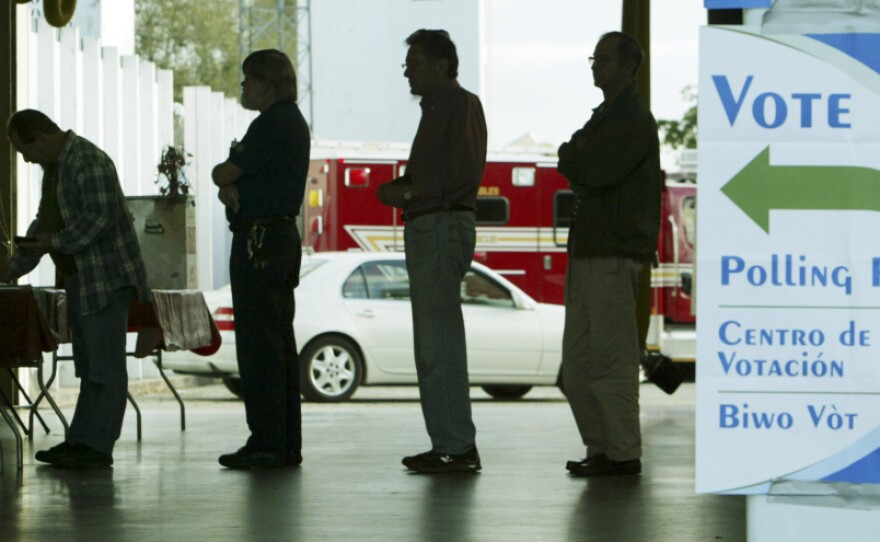This December, along with the holidays, voters in Iowa and New Hampshire can also look forward to lots of visits from presidential candidates. The primary calendar now looks like it will start early in January—first with the Iowa caucuses, followed closely by New Hampshire, Nevada, South Carolina and then, by month's end, Florida.
On Friday, officials in the Sunshine State announced they were scheduling their presidential primary on Jan. 31 — breaking party rules and forcing four other states to move up even earlier to maintain their places in the batting order.
Under Republican Party rules, only four states — Iowa, New Hampshire, Nevada and South Carolina — are allowed to hold presidential nominating contests before March 6.
Tell that to Florida — a megastate that has agitated for years to be more important in the primary season.
A special state commission met Friday and decided—for the second presidential cycle in a row — that Florida would flout the rules. State Sen. John Thrasher, a Republican, said in choosing Jan. 31, Florida is showing respect to the four traditional early states.
"Florida has more voters than all of those other states combined," Thrasher said. "And it has an incredible amount of diversity. It is a reflection, I think, of the national interest. And Florida, because of that, ought to be an early state."
Other States Cry Foul
That might be how it looks in Florida. But other states—jealously guarding their early positions—see it differently. Iowa's Republican Party chairman called Florida leaders arrogant.
In South Carolina, the Republican chairman described Florida as a "rogue state" that should lose all of its delegates at next year's national convention.
The executive director of South Carolina's GOP, Matt Moore said his state will now have to move up its primary into January — and he is not happy about it.
"A compressed calendar in January really hurts candidates, it hurts voters," Moore said. "For the Republican Party, this election is important to get wrong. And we want to pick the best candidates. And a calendar that makes sense would really go a long way to doing that."
When Florida jumped the line four years ago, both parties imposed penalties. This time, with President Obama likely running unopposed, there won't be a Democratic primary. That makes this a Republican-only dilemma.
Biden: Florida Too Big To Ignore
But that hasn't stopped Vice President Joe Biden from weighing in. In an interview this week on NPR member station WLRN in Miami, Biden said Florida was right to go early.
"Anybody who thinks they can walk away from Florida and get elected president, anybody who thinks they can walk away from Florida and be held harmless in the nominating process, I think is making a gigantic mistake in either of our parties," Biden said.
Florida Republican leaders agree. Four years ago, Florida's primary helped seal the nomination for Sen. John McCain. The state was penalized half of its votes at the convention, but in the end, the party seated all the state's delegates. That's the outcome Florida Republicans are betting on again this time.
The Republican National Committee will now have to negotiate with the four traditional early voting states before it can finalize the primary calendar.
As in 2008, Iowa now looks likely to hold its caucuses in the first or second week of January.
In New Hampshire, the secretary of state announced that the filing period for presidential candidates in his state would commence two weeks from Monday. And he said he couldn't rule out holding his state's primary as early as December.
Copyright 2022 NPR. To see more, visit https://www.npr.org. 9(MDAzMjM2NDYzMDEyMzc1Njk5NjAxNzY3OQ001))







